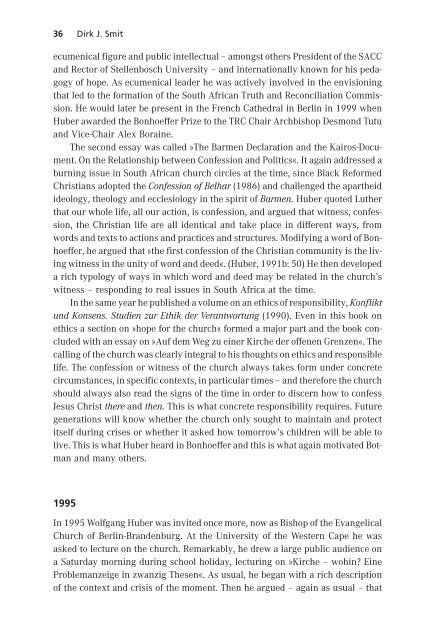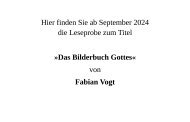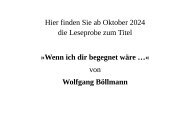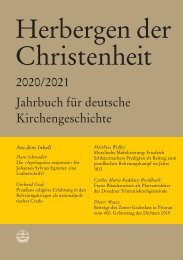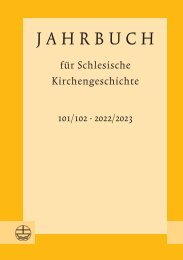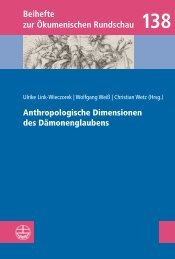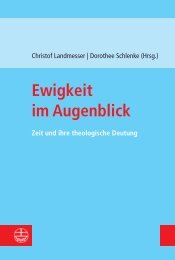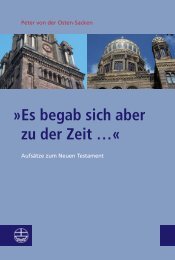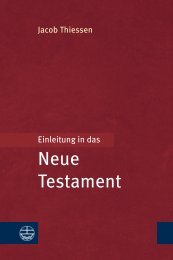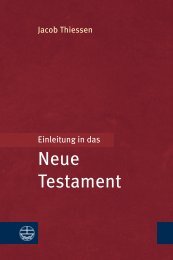Heinrich Bedford-Strohm | Peter Bubmann | Hans-Ulrich Dallmann | Torsten Meireis (Hrsg.): Kritische Öffentliche Theologie (Leseprobe)
Das Programm der Öffentlichen Theologie ist in unterschiedlichen internationalen Kontexten auf je eigene Weise entstanden und lässt sich als Diskursformat verstehen, das auf eine veränderte Öffentlichkeit reagiert und mittlerweile im Global Network for Public Theology zu einer eigenen akademischen Gestalt gefunden hat. Da diese Geschichte nicht nur im deutschsprachigen Kontext ohne Wolfgang Hubers Einfluss nicht nachvollzogen werden kann, ist es sinnvoll und angemessen, ihm einen Band zu widmen, der die Begründung und Weiterentwicklung der von ihm angestoßenen kritischen Spielart Öffentlicher Theologie zum Thema hat.
Das Programm der Öffentlichen Theologie ist in unterschiedlichen internationalen Kontexten auf je eigene Weise entstanden und lässt sich als Diskursformat verstehen, das auf eine veränderte Öffentlichkeit reagiert und mittlerweile im Global Network for Public Theology zu einer eigenen akademischen Gestalt gefunden hat. Da diese Geschichte nicht nur im deutschsprachigen Kontext ohne Wolfgang Hubers Einfluss nicht nachvollzogen werden kann, ist es sinnvoll und angemessen, ihm einen Band zu widmen, der die Begründung und Weiterentwicklung der von ihm angestoßenen kritischen Spielart Öffentlicher Theologie zum Thema hat.
Sie wollen auch ein ePaper? Erhöhen Sie die Reichweite Ihrer Titel.
YUMPU macht aus Druck-PDFs automatisch weboptimierte ePaper, die Google liebt.
36 Dirk J. Smit<br />
ecumenical figure and public intellectual – amongst others President of the SACC<br />
and Rector of Stellenbosch University – and internationally known for his pedagogy<br />
of hope. As ecumenical leader he was actively involved in the envisioning<br />
that led to the formation of the South African Truth and Reconciliation Commission.<br />
He would later be present in the French Cathedral in Berlin in 1999 when<br />
Huber awarded the Bonhoeffer Prize to the TRC Chair Archbishop Desmond Tutu<br />
and Vice-Chair Alex Boraine.<br />
The second essay was called »The Barmen Declaration and the Kairos-Document.<br />
On the Relationship between Confessionand Politics«. It again addressed a<br />
burning issue in South African church circles at the time, since Black Reformed<br />
Christians adopted the Confession of Belhar (1986) and challengedthe apartheid<br />
ideology, theology and ecclesiology in the spiritof Barmen. Huber quoted Luther<br />
that our whole life, all our action, is confession, and argued that witness, confession,<br />
the Christian life are all identical and take place in different ways, from<br />
words and texts to actions and practices and structures. Modifying aword of Bonhoeffer,<br />
he argued that »the first confession of the Christiancommunity is the living<br />
witness in the unity of word and deed«. (Huber, 1991b: 50) He thendeveloped<br />
arich typology of ways in which word and deed may be related in the church’s<br />
witness – responding to real issues in South Africa at the time.<br />
In the same year he published avolume on an ethics of responsibility, Konflikt<br />
und Konsens. Studien zur Ethik der Verantwortung (1990). Even in this book on<br />
ethics asection on »hope for the church« formed amajor part and the book concluded<br />
with an essay on »Auf dem Wegzueiner Kirche der offenen Grenzen«. The<br />
calling of the church was clearly integral to his thoughts on ethics and responsible<br />
life. The confession or witness of the church always takes form under concrete<br />
circumstances, in specific contexts,inparticular times – and therefore the church<br />
should always also read the signs of the time inorder to discern how to confess<br />
Jesus Christ there and then. This is what concrete responsibility requires. Future<br />
generations will know whether the church only sought tomaintain and protect<br />
itself during crises or whether it asked how tomorrow’s children will be able to<br />
live. This is what Huber heard in Bonhoeffer and this is what again motivated Botman<br />
and many others.<br />
1995<br />
In 1995 Wolfgang Huber was invited once more, now as Bishopofthe Evangelical<br />
Church of Berlin-Brandenburg. At the University of the Western Cape he was<br />
asked to lecture on the church. Remarkably, he drew alarge public audience on<br />
aSaturday morning during school holiday, lecturing on »Kirche – wohin? Eine<br />
Problemanzeige in zwanzig Thesen«. As usual, he began with arich description<br />
of the context and crisis of the moment. Then he argued – again as usual – that


